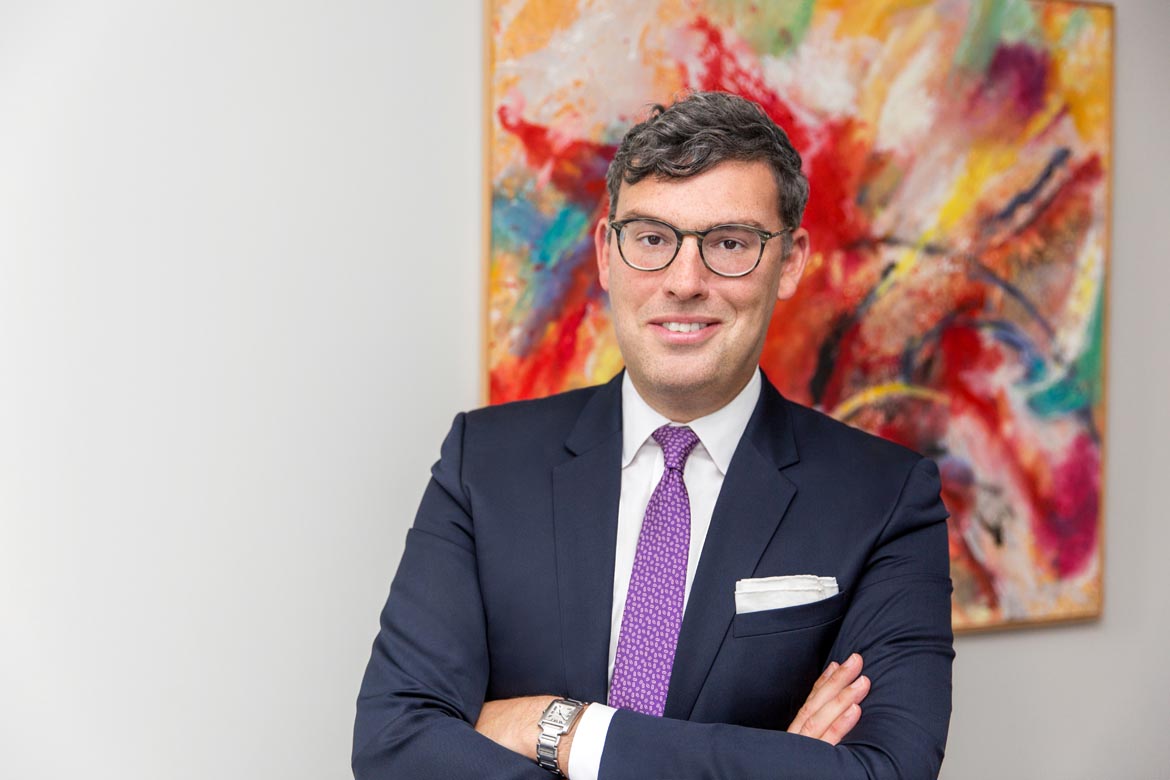(Originally published in Lawdragon)
Since opening its doors almost four years ago, Selendy & Gay has exemplified its commitment to a new level of diversity in elite law practice. Starting out with ten world-class lawyers operating out of an apartment in Manhattan, the firm now boasts 50 attorneys in its Midtown office. They’ve achieved abundant success on both defendant- and plaintiff-side matters, ranging from financial services litigation to securities and trade secrets cases. But the firm’s core principle remains the same from its founding: a commitment to winning cases through innovation, mentorship and inclusivity.
The firm is already considerably more diverse than many of its peers. 50 percent of the firm’s equity partners are women, and more than 22 percent of its attorneys identify as LGBTQ+ (compared to an average of just 2.5 percent across BigLaw firms). The team nevertheless refuses to rest on its laurels; instead, they are seeking out ways to increase diversity in areas where it may be lacking – which, first and foremost, means bringing on more first-generation lawyers and attorneys of color. To encourage that shift, the firm recently announced the launch of their new diversity-centered fellowship program. The fellowship aims to hire and foster underrepresented lawyers, striving to create a more equitable legal system that reflects the society in which these lawyers practice.
The fellowship will be open to 2Ls, 3Ls, and lateral associates who are racially diverse, first-generation college students, or from economically-disadvantaged backgrounds. The firm is targeting 6-8 fellows per cycle, which, given its overall size, demonstrates the level of its commitment to the program.
In addition to a $30,000 stipend distributed in tranches, Selendy & Gay’s fellows will receive an unprecedented level of career support, including individualized coaching from a selected outside mentor, leadership skill development and devoted time with senior partners.
“The real heart of this fellowship is the ongoing professional support, dedication of scarce resources, and bespoke design. The fellowship is tailored to the needs of each recipient,” says partner David Flugman, who leads the firm’s diversity, equity and inclusion efforts.
He notes that the demographic makeup of law students does not reflect who holds positions of power at law firms. So, he and his colleagues set out to level the playing field for people who come from less traditionally represented backgrounds in law firms, enabling them to succeed at the same rate as those from more advantaged circumstances (namely, straight white men).
The fellowship’s structure is carefully crafted to ensure that it facilitates sustainable growth and support for its fellows. Flugman’s team conducted extensive research on other firms’ fellowships to assess how to improve upon current offerings. What they found was that firms’ DEI recruiting efforts needed a paradigm shift.
“The problem with other diversity-focused fellowships,” Flugman observes, “is that they concentrate on the recruiting stage with the focus on a monetary incentive, which, one could argue, is buying diversity. We wanted instead to think about how to provide long-term support and professional development for people to unlock their potential as lawyers.”
Flugman explains that the team spent extensive time talking with associates of color and first-generation students about what resources they would have benefitted from earlier in their careers. In developing the core offerings of the fellowship, the firm knew it was critical to provide access to the right kind of support. “I’m very cognizant that, while a gay man, I am still a white cis man, and my experience is not the same as a Black woman graduating from law school,” notes Flugman.
To that effect, he notes that the fellowship’s goal is not to fit diverse lawyers into the career molds of straight white men, but rather, “to create an environment where people can bring their full selves to bear on their legal careers, to use their background to become a better litigator.”

Flugman himself is a celebrated trial lawyer, named as one of the “Best LGBT Lawyers Under the Age of 40” by the LGBT Bar Association and one of the “500 Leading Lawyers in America” by Lawdragon. With multinational trial experience across industries, he represents clients in corporate financial litigation and business disputes.
Flugman’s public interest work reflects his role as the firm’s leader of DE&I: In just a sampling of his successes, he led a team that won a crucial victory for thousands of LGBTQ youth when an appellate court rejected an attempt to reverse New Jersey’s ban on “sexual orientation change efforts,” also known as gay conversion therapy. The success of that case reinforced the strength of similar bans in seventeen other states and Washington, D.C. Flugman also represented several distinguished law professors, as amici curiae, in Fulton v. City of Philadelphia, a closely watched gay rights case before the U.S. Supreme Court.
He will be far from the only source of inspiration for the fellows. One of the fellowship’s external coaches is Kwame Christian, founder and director of the American Negotiation Institute. The American Negotiation Institute’s motto is, “The best things in life are on the other side of difficult conversations,” and Christian, a lawyer himself, will demonstrate how those negotiation skills can transform a young attorney’s career. “When I’m doing continuing legal education classes on negotiation for lawyers, there’s often an assumption that I’m going to focus only on negotiations with opposing counsel.” But, Christian says, “you’re going to negotiate even more with the people who are on your team. You need to negotiate with your clients and their expectations.”
In addition to his role at the American Negotiation Institute, Christian is also a writer for Forbes and a professor of law at both The Ohio State University’s Moritz College of Law and Otterbein University’s MBA program.
When asked how diversity can aid and transform a firm’s work, Christian explains that “Diversity of thought is important. The fellows are going to bring a different perspective that I think will serve the clients well, because then you’re getting the benefit of a true multitude of people, not clones of the same person.” As a result, diversity is not only integral from an equity standpoint, but from a business one, as well.
Christian has collaborated extensively with Selendy & Gay in the DEI space. Before starting this initiative, the firm worked with the American Negotiation Institute’s training program, which advises companies on how to deepen anti-racist practices in the workplace. He admires the firm’s commitment to diversity, equity and inclusion: “I’ve always been really impressed with not only their current progressive statistics, but their hunger to continue to get better. They keep on moving forward, which is really impressive.” He believes that “with this fellowship, they’re investing in the future, not only for their firm, but also for the community at large.”
The fellowship will help nurture each fellow’s future – not only through the fellowship’s offerings, but through the ethos of the firm itself. Selendy & Gay’s transparent and non-hierarchical structure means the fellows will have a true voice in the office. The advantage of a boutique firm, explains Flugman, is that “our third- and fourth-year associates are functioning on the same level as junior partners at other firms, in terms of what they’ve achieved, the experiences they’ve had and their comfort level in court.”
In fact, some of the firm’s developing practice areas have been realized thanks to the eagerness of its associates. Some fields, like family law and patents, have entered the firm’s portfolio because of associates’ specific interests. The firm also has an Associates’ Committee, where associates can get involved in recruiting, mentorship, marketing and other functions.
In addition to reflecting the interests of all its lawyers, Selendy & Gay demonstrates a deep-seated commitment to public interest work. Both the firm’s pro bono and commercial litigations fall in line with its ethical and moral values.
In 2018, just after opening the firm, they filed a suit against loan service provider Navient on behalf of the American Federation of Teachers (AFT) in the Southern District of New York. The class action alleged that Navient misled public service borrowers (in this case, teachers, nurses and others) and prevented them from accessing loan forgiveness. The case settled on favorable terms for the borrowers in 2020, with Navient committing, among other things, to reform its call center practices and contribute $2.25 million to an independent organization that will deliver education and student loan counseling to public service borrowers.
The firm continued to fight against unfair loan practices by later bringing suit against then-Secretary of Education Betsy DeVos and the Department of Education on behalf of AFT and public servants who were blindsided by the rejection of their student loan forgiveness applications under the Public Service Loan Forgiveness program. In October, the team from Selendy & Gay achieved what was described as a “historic” settlement on behalf of AFT and the other plaintiffs. The agreement promises significant overhauls of the Department’s administration of the program and discharges the full remaining loan balances of the plaintiffs, eliminating close to $400,000 of debt and securing the forgiveness towards which they have worked diligently for over a decade.
In terms of commercial litigation, the firm is currently involved in a suit to hold major Wall Street banks accountable for conduct that contributed to Puerto Rico’s economic collapse. Specifically, they represent bond insurers who paid out over $1 billion dollars in claims after municipal debt underwritten by the banks– without proper due diligence – became unsustainable for Puerto Rico and its agencies, leading to massive defaults.
The firm is also handling several high-profile cryptocurrency litigations. In one such case, they represent investors alleging that the issuer Tether and crypto exchange Bitfinex falsely claimed that Tether, a purported “stablecoin,” was fully backed by U.S. dollars as part of a market-manipulation scheme that inflated the price of Bitcoin and other cryptocurrencies, costing investors hundreds of billions of dollars. In September, the investors defeated an attempt to toss out their claims, and the case is now moving ahead in federal court.
These kinds of cases are nothing new for Selendy & Gay’s attorneys: Before founding the firm, partner Philippe Selendy fought on the side of Fannie Mae and Freddie Mac against the world’s largest banks for their role in the subprime mortgage crisis, eventually securing $25 billion in settlements and trial verdicts for taxpayers in the aftermath of the Great Recession. All of these types of cases are ones which Selendy & Gay’s fellows will be working on when the fellowship begins.
When asked about how other firms can have conversations about starting similar programs, Kwame Christian says the answer is by doing just that: “Often, procrastination is just a manifestation of fear. People need to start holding themselves accountable for actually creating something tangible. We overthink the process instead of leaning in, having the conversation and doing what needs to be done.”
With the firm’s ethos and the creation of this fellowship, Selendy & Gay makes it clear that they are unafraid to take action. Since its inception, the firm has been described as a new model of elite litigation firm; as time passes, the team only further demonstrates their commitment to positively disrupting traditional law firms’ practices. When their fellowship begins, it will provide opportunities for junior lawyers to develop and launch their careers in a successful, supportive environment that strives for equity – spearheading an evolving legal landscape.


